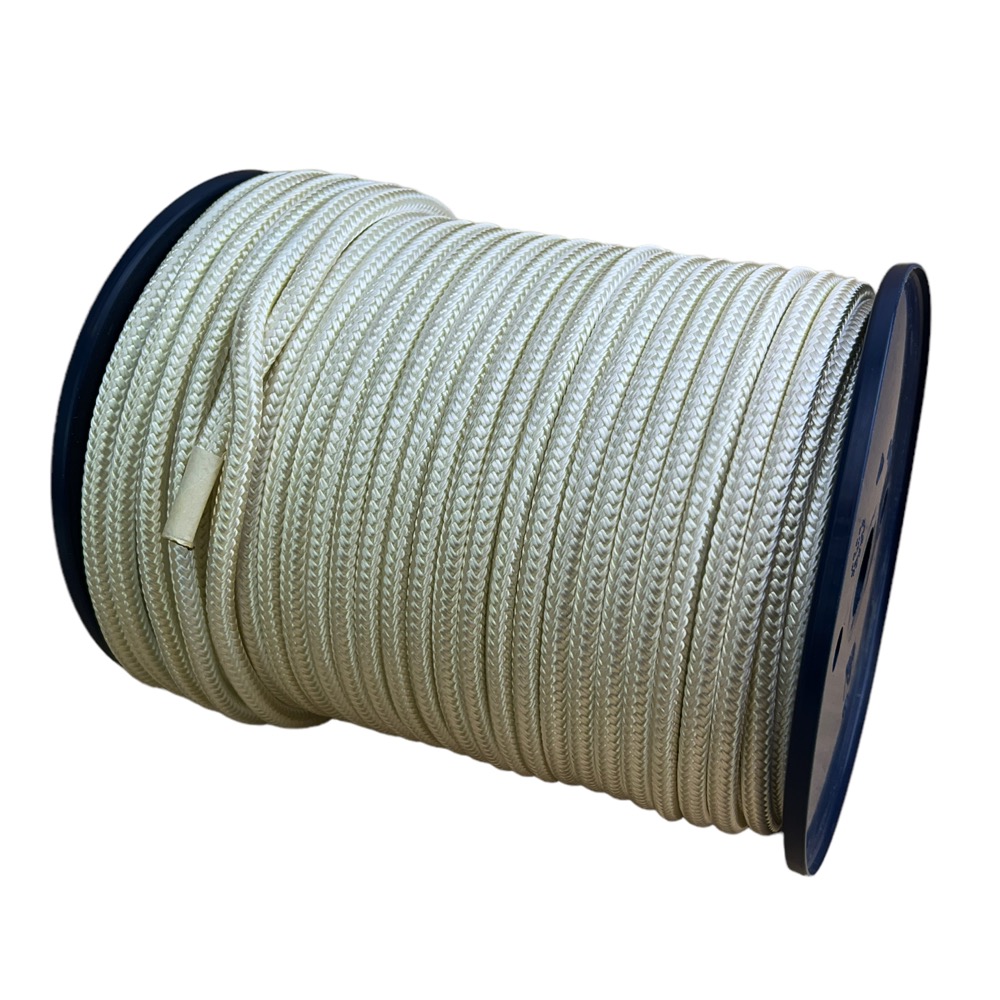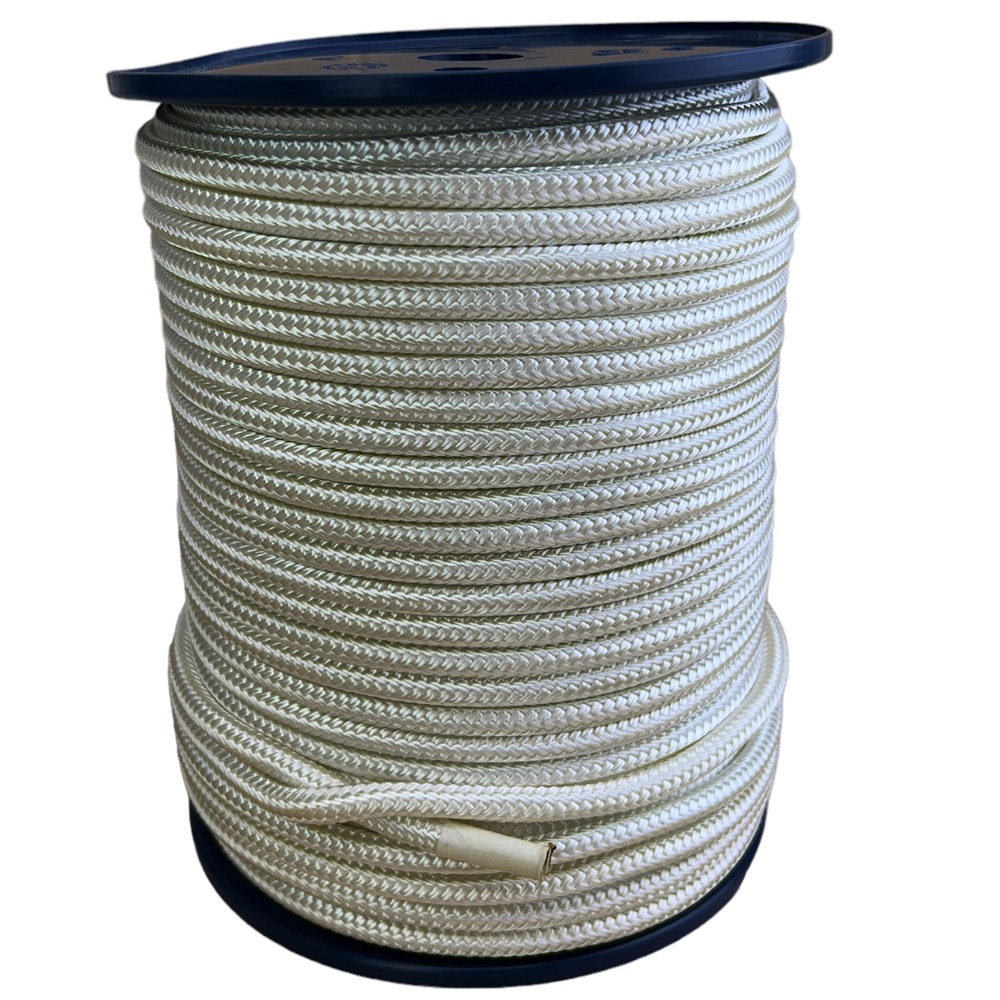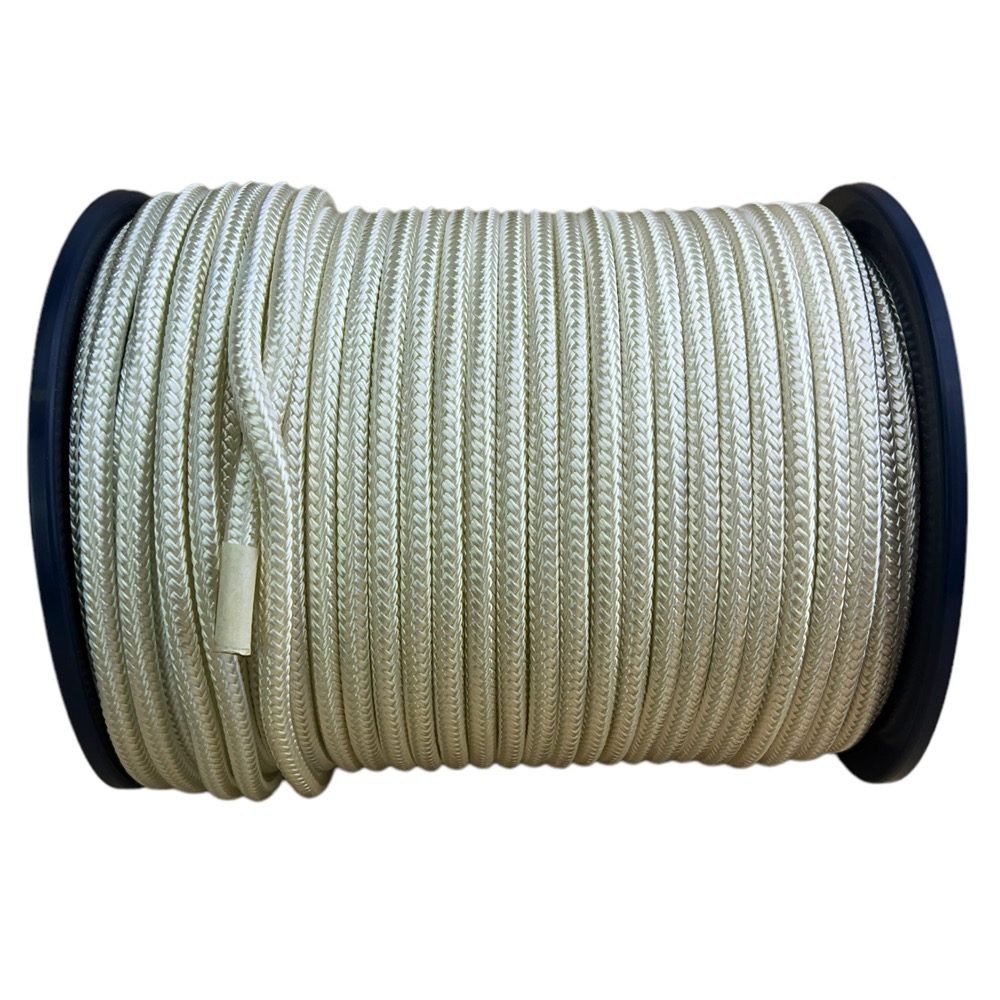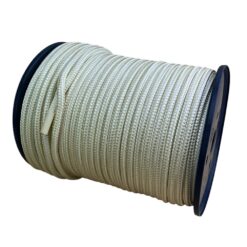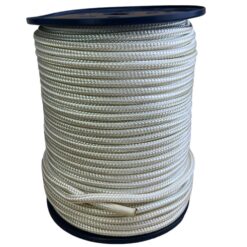4mm White Braided Nylon Rope x 100 Metres
£80.00
Braided Nylon Rope
Please Note – Length is approximate
Diameter of spool used for pictures is 7mm.
Introducing our 4mm White Double Braided Nylon Rope on an 100-metre reel – a versatile and robust solution for a wide range of applications. Nylon, the pioneer among industrial man-made fibers, lends this rope unparalleled strength, making it one of the most formidable choices in the world of synthetic ropes.
Key Features:
Exceptional Strength:
Braided Nylon stands out as one of the strongest industrial fibers available, ensuring reliability in various demanding scenarios. Its superior strength surpasses other polymer-based ropes.
Wear-Resistant Durability:
Engineered for longevity, our nylon rope exhibits excellent wear capabilities, ensuring it stands up to the rigors of frequent use and challenging environments.
Shock-Loading Resistance:
The high stretch and strength of this double braided nylon rope combine to provide outstanding resistance to shock loading. It’s the go-to choice when durability under pressure is paramount.
Water Absorption and Sinking:
Designed for marine and water-related applications, this rope absorbs water and sinks, making it a reliable companion in aquatic environments.
Our 3mm White Double Braided Nylon Rope is meticulously crafted to meet the highest standards of strength, durability, and versatility. Whether you’re involved in marine activities, construction, or any application demanding reliable tensile strength, trust in this nylon rope to deliver performance that withstands the test of time. Elevate your projects with a rope designed for excellence.
Synthetic Rope and Its Properties
Synthetic rope is made from man-made fibers such as nylon, polyester, polypropylene, and polyethylene. These ropes are known for their high strength, durability, and resistance to various environmental factors. Unlike natural ropes, synthetic ropes do not absorb water, making them ideal for use in wet and outdoor environments. However, synthetic ropes have their own set of characteristics and considerations that you should be aware of.
Behavior in Wet Conditions
One of the key advantages of synthetic ropes over natural ones is their minimal water absorption. Synthetic ropes generally do not shrink or expand when exposed to moisture, making them highly reliable in marine, industrial, and outdoor applications. However, while they do not absorb water, some synthetic ropes may become slippery when wet, which can affect handling and knot-holding capabilities.
Effects of UV Exposure
Unlike natural ropes, synthetic ropes are resistant to rot and mildew, but they can be affected by prolonged exposure to UV rays. Over time, UV exposure can weaken the fibers, causing the rope to degrade and lose strength. To mitigate this, synthetic ropes can be treated with UV inhibitors or stored out of direct sunlight when not in use.
Resistance to Chemicals and Abrasion
Synthetic ropes are generally more resistant to chemicals and abrasion compared to natural ropes. For instance, nylon and polyester ropes are highly resistant to various oils, acids, and alkalis, making them suitable for harsh industrial environments. Additionally, these ropes have excellent abrasion resistance, which means they can withstand rough surfaces without significant wear.
Elongation and Stretch
Different types of synthetic ropes have varying degrees of elongation. For example, nylon rope is known for its elasticity, which allows it to absorb shock loads without breaking. This makes nylon rope ideal for dynamic applications such as climbing, towing, and mooring. On the other hand, polyester rope has low stretch, making it suitable for applications where maintaining tension is critical.
Care and Maintenance
To extend the lifespan of synthetic ropes, it’s important to follow proper care and maintenance practices. Regularly inspect the rope for signs of wear, abrasion, or UV damage. If the rope shows significant signs of wear, such as fraying or thinning, it should be replaced to ensure safety and performance.
Storage Considerations
When storing synthetic ropes, keep them in a cool, dry place, away from direct sunlight and chemicals. Coiling the rope properly and avoiding tight bends can also help prevent kinks and maintain the rope’s integrity.
Summary
Synthetic ropes offer numerous advantages over natural ropes, including resistance to water, rot, and chemicals. They are durable and strong, making them suitable for a wide range of applications. However, it’s important to be aware of their susceptibility to UV damage and to take appropriate measures to protect the rope from prolonged exposure. By properly maintaining and storing synthetic ropes, you can ensure their longevity and reliable performance in various conditions.



